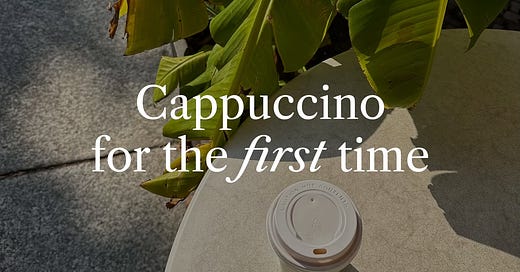I've always known that success isn't the main goal of my life. Yet, whenever I found myself succeeding, I felt uneasy. Very uneasy.
Of course, I’ve always had dreams—since I was a little girl. I wanted to become a professor or a belly dancer, though I couldn’t understand why my father wasn’t thrilled by the latter choice, as my aunts laughingly reminded me. I always wanted children and to meet the love of my life.
And even now, I still have dreams and goals. I hold my dreams close. Very close. I never forget my goals. They are always at the forefront of my mind.
But I don’t like success. It’s not that I hate it; I reject the concept of success that society imposes on us all.
Success, according to Wikipedia, is the state or condition of meeting a defined range of expectations.
But whose expectations am I supposed to fulfill? My parents’? My friends’? My colleagues’? Society’s?
I don’t like success because, in our society, it’s all about meeting the expectations of others—not my own.
During my years in Istanbul and London, when everything seemed possible—not because every door was open to me, but because I met people who inspired me and had opened many doors for themselves—I was caught in a storm. I encountered high-profile politicians, club owners, businesswomen, fashion designers, actors, and musicians who made it from scratch. Then there were those who seemed born to buy the world—investors, bankers, academics. The clear vision I had of my life and dreams became clouded. So I just kept going with my writing, interviews, and academic work, heading nowhere in particular.
I felt lost—not because I wasn’t doing what I loved, but because society’s mirror told me I needed to drive an expensive car, appear on talk shows, write bestsellers, have thousands of followers on Twitter or Instagram, be invited to prestigious media events, win the most coveted media awards, or take selfies with influential people in my field. And to achieve that, I’d have to do things that didn’t align with my values. One day, I’ll revisit this and explain more clearly.
Back in the village of my parents in Anatolia, my two elderly aunts visited our home. I offered them coffee and said, “I’ll make it my way.” They agreed, not knowing what kind of coffee they’d get. Normally, I serve them instant Nescafé (a favorite in Turkey, even before they discovered Italian coffee) or Turkish coffee. This time, I served them cappuccino—made with my Italian espresso maker and a milk frother I bought on Amazon in Germany. My first aunt was familiar with cappuccino since she lives in Antalya and only visits her husband’s village in the summer. I whispered to her, “You know this, right?” She nodded. Then I added, “Of course, you know—you’re an urban woman.” The 80-year-old woman smiled so proudly that I just wanted to hug her.
I also served cappuccino to my father’s cousin and his wife, who arrived shortly after my aunts. While he sipped his cup, I said, “I hope you like it—this is a different kind of coffee.” He simply replied, “We’ll get used to it.”
His wife added, “Oh, we had this once, you know Hasim? With Margarete.” She was talking about Hasim’s brother’s Polish wife. As they all giggled and reminisced about trying cappuccino, I was reminded of what my family and surroundings had taught me: to be open to new experiences, to embrace change, and to never be ashamed of not knowing something. Whether it’s your first Italian coffee, your first visit to a fancy restaurant staring at the three forks on the table, or your first interview with a high-profile politician—my parents, who came from a small village near Erzincan and made their way to Germany, instilled this in me. My aunt even migrated further to the GCC. This conversation, on a Wednesday evening in the middle of autumn in Anatolia, reminded me of my secret to my success:
To do what I want without feeling bad or ashamed. To dive into new oceans, to embrace change without losing myself, to attend fashion events or political discussions in foreign cities with strangers, but always remain true to myself. To be proud of who I am. To feel no pressure to meet others’ expectations—only my own.
For me, success isn’t about material things like a title, a bank statement, or a bestseller book. Success is the feeling I have when I achieve something I desire. I am successful when I feel good, when I feel alive—not bad, not ashamed, not guilty.
To be successful means meeting your own expectations with a sense of fulfillment. It means being open to the world without losing your true authenticity.
Dersim, the home of my ancestors, taught me that success can be as simple as enjoying a cappuccino for the first time.





